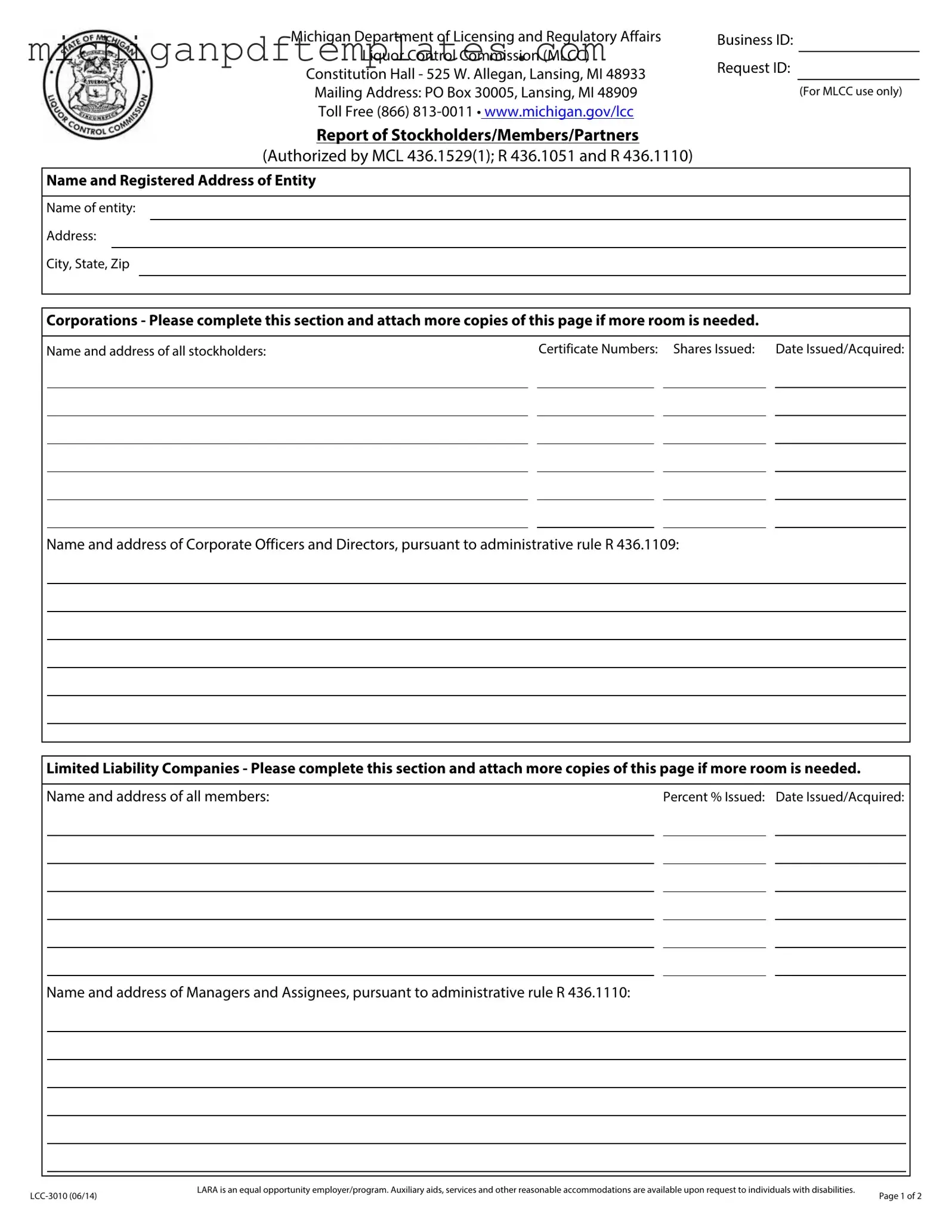Fill in Your Michigan Lcc 3010 Form
The Michigan LCC 3010 form is a crucial document used to report information about stockholders, members, or partners of a business seeking liquor licensing in Michigan. This form ensures compliance with state regulations and provides transparency regarding ownership. For those ready to navigate the licensing process, filling out the LCC 3010 is an essential step—click the button below to get started.
Get Your Form Now

Fill in Your Michigan Lcc 3010 Form
Get Your Form Now

Get Your Form Now
or
▼ PDF Form
Finish this form quickly and move on
Fill in and complete Michigan Lcc 3010 online quickly.